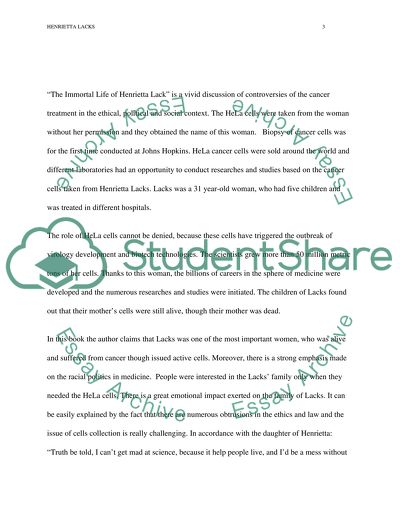Cite this document
(“The Immortal Life of Henrietta Lack Book Report/Review”, n.d.)
Retrieved from https://studentshare.org/health-sciences-medicine/1447099-the-immortal-life-of-henrietta-lack
Retrieved from https://studentshare.org/health-sciences-medicine/1447099-the-immortal-life-of-henrietta-lack
(The Immortal Life of Henrietta Lack Book Report/Review)
https://studentshare.org/health-sciences-medicine/1447099-the-immortal-life-of-henrietta-lack.
https://studentshare.org/health-sciences-medicine/1447099-the-immortal-life-of-henrietta-lack.
“The Immortal Life of Henrietta Lack Book Report/Review”, n.d. https://studentshare.org/health-sciences-medicine/1447099-the-immortal-life-of-henrietta-lack.


